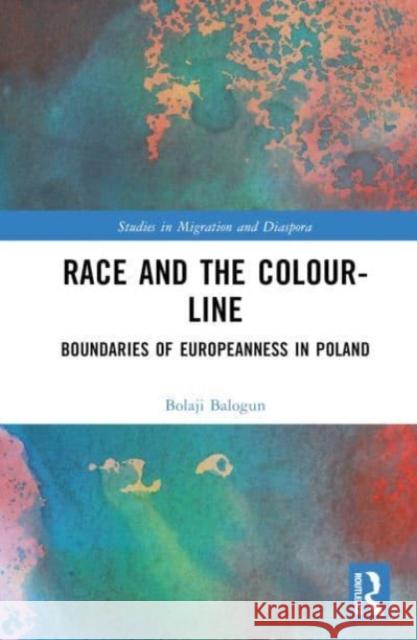Race and the Colour-Line: Boundaries of Europeanness in Poland » książka
Race and the Colour-Line: Boundaries of Europeanness in Poland
ISBN-13: 9781032112381 / Angielski
Race and the Colour-Line: Boundaries of Europeanness in Poland
ISBN-13: 9781032112381 / Angielski
(netto: 666,90 VAT: 5%)
Najniższa cena z 30 dni: 89,51 zł
ok. 16-18 dni roboczych.
Darmowa dostawa!
Premised on critical race theory and drawing on ethnographic research, this book explores the everyday racial experiences of people of colour from sub-Saharan African descent living in Poland, examining the ways in which the momentum of the Black Lives Matter movement has brought to the fore the obscurities of race and racism in the country.
Race and the Colour-Line addresses the foundational ideas about race and colonialism in Central and Eastern Europe and reconnects them to the global manifestations that influenced them. Focusing on race and colonialism, this book indicates a shift in the global racial discourse – an understanding of the specificity of Polish racism that can transform and add to our understandings of race in the West. Drawing on archival resources – manuscripts, documents, and records – from Poland and other parts of Europe, the book offers a compelling theoretical and historical context of race-making in the so-called ‘peripheral sphere’, whilst outlining the ways in which race and colonialism have been framed specifically within the Polish–Lithuanian Commonwealth and its empire in the Atlantic world. Following a race-conscious social analysis, the significance and originality of this work lie in tracing the specificity of Blackness in Europe, and the very particular, but often neglected case of Black people in Central and Eastern Europe. To chart all this commendably, premised on critical race studies, the author uniquely explores the everyday racialized experiences of people of colour from Sub-Saharan African descent living in contemporary Poland and brings to the fore the obscurities of race and racism in the country. Through ethnographic research, the author shows how these particular people perform multiple identities in their daily lives as part of the configuration of a racially complex society. The demonstration of the ‘globality of racism’ in this book examines the phenomenon of race beyond its usual context in the West, and as such will appeal to scholars from a range of disciplines including Sociology, Geography, Anthropology, Postcolonial, Polish and Slavic Studies.











